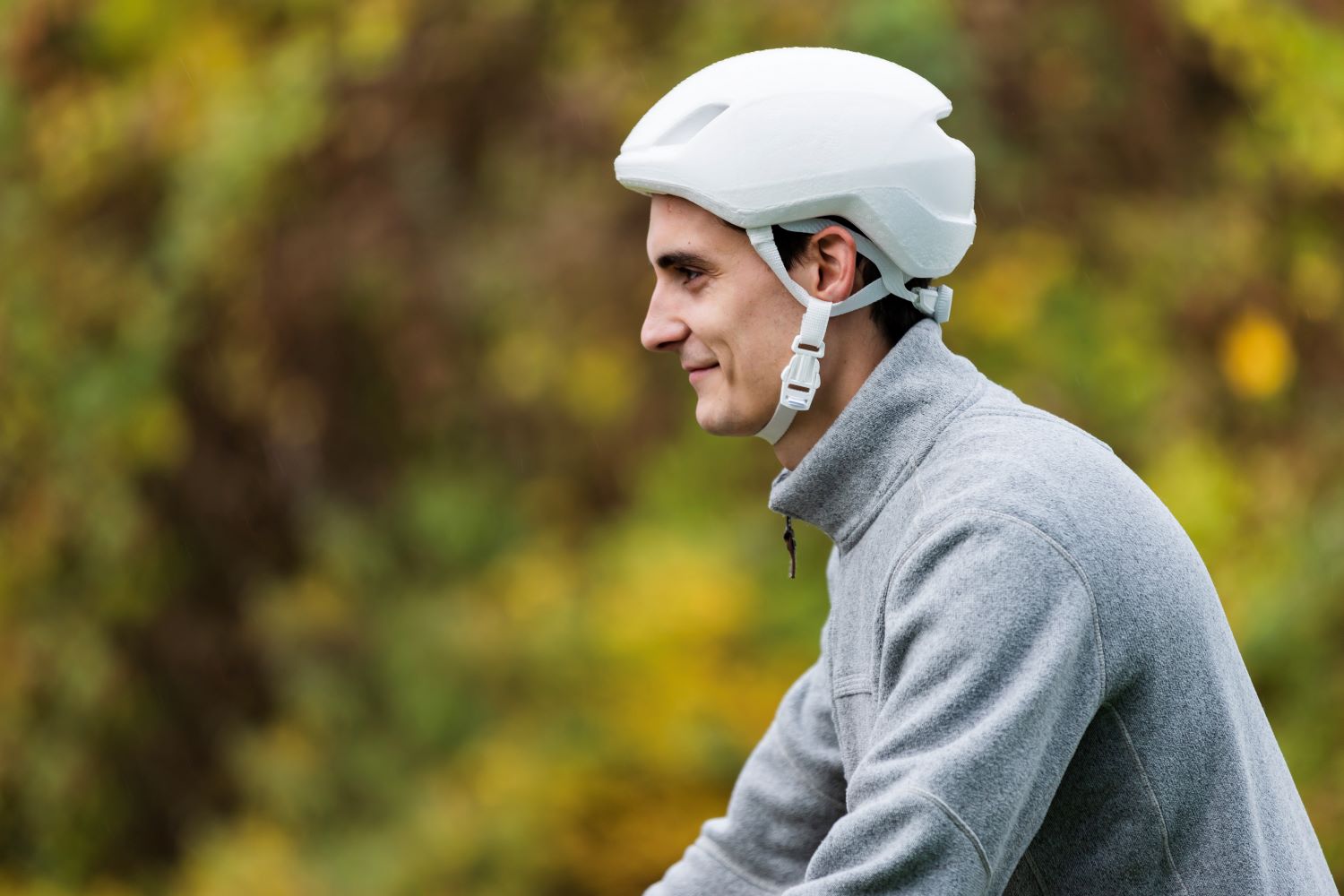Design, Lifestyle and Functionality are central Criterial Matters for Sale for Sportingarticles and Accessoires. This market are booming and the most of deliverers are from Asienmarkets to Europe. In most case, they are not ecological sufficient sustainable. Researchers of Fraunhofer-Institut for Chemical Technology ICT from Pfinztal near Karlsruhe have now developed an alternate through an forwarded Project.
Pfinztal, November 25, 2024. The central Point of Productsdesign bei Bicyclinghelmets are functionality. Heretofore this was an downside for Lifecycle of thos kind of products and had also an big footprint. Especially when this helmet are produced with plastic of Mass on basic in fossil oil and also from a long distance from Asia to Europe.
The Shell ist made of Polycarbonat (PC), the foam core from Polystyrol-Foam (EPS), some part of helmet from Polypropylen (PP) and Straps from Nylon (PA). After his Lifecycles, the helmet goes waste incineration.
If we scrutinise the principle of manufacturing each component from a specific material, we arrive at new, sustainable production approaches. The PIMMS project, funded by the Fraunhofer Future Foundation, demonstrates one such approach. As part of this project, various sports articles have been developed that consist of just one material. The bio-based and recyclable plastic PLA is particularly suitable for this. Thanks to its technical properties and competitive price, it has been established on the market for several years. PLA has a material footprint that is up to eight times smaller than the materials used to date.
New bicycle helmet made entirely from PLA biopolyester
The bicycle helmet is an ideal demonstrator for the new material and design concept, as it must guarantee high functionality, in particular high energy absorption with low weight. Wearing comfort, price and appearance are also crucial for market success. As part of the one-and-a-half-year market-oriented project, the Fraunhofer ICT developed particle foams, thermoforming films, fibres and composite materials made exclusively from PLA in cooperation with industrial companies (Comfil ApS, Elas A/S, WSVK, Polyola SAS). Their production and processing require precise and customised process control. Thanks to the broad-based cooperation, the PLA helmet could be produced in the same high-volume process as the conventional petroleum-based bicycle helmet. This lays the foundation for a competitive market launch of the new helmets.
The material’s resistance to normal environmental influences during use has already been positively tested. The standardised external test, which is intended to prove the helmet’s suitability for use, is still pending. A life cycle analysis (LCA) will also quantify the improved carbon footprint of the mono-material bicycle helmet, which is suitable for recycling, compared to the petroleum-based design across production, use and end-of-life.
Further information:
(https://www.ict.fraunhofer.de/de/presse_mediathek/pressemitteilungen/2024/fahrradhelme-aus-pla.html)
ImageSource: Fraunhofer ICT, Recycable bio-based Monomaterial-Bicycle-helmet from EPLA.



Schreibe einen Kommentar